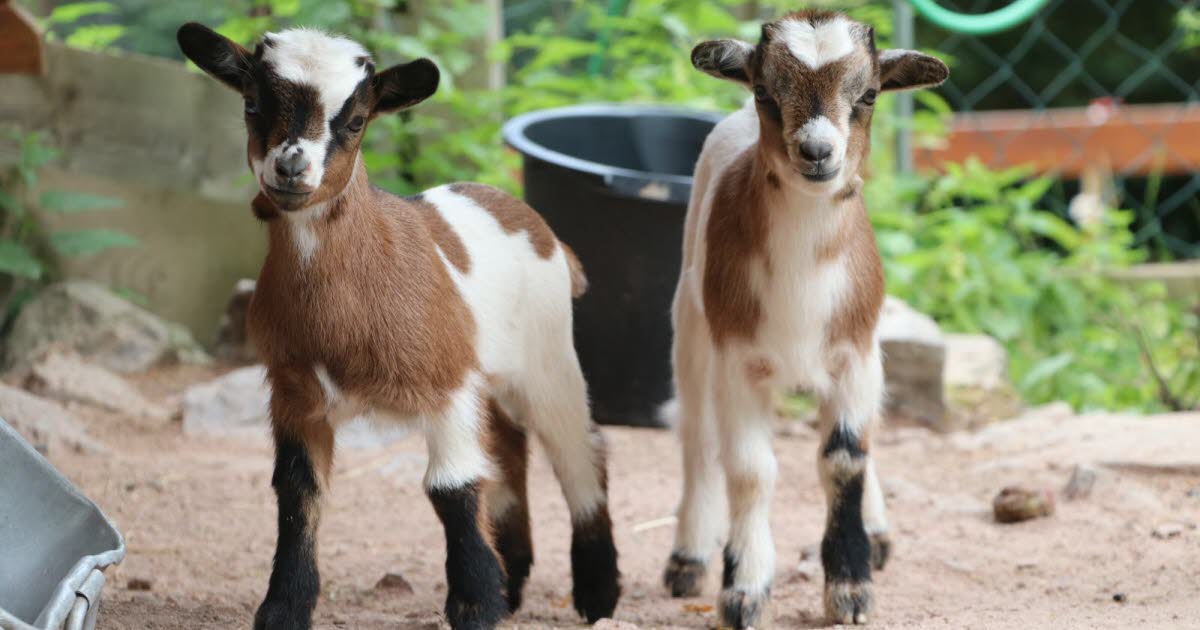They became social media stars. The mini-animal trend, which came from the United States, has been widely promoted by TikTok and Instagram. Videos of these mini-goats, mini-cows or mini-pigs explode on the view counter and the adoption requests start pouring in.
These are not babies, but animals of finite size. Even the actor Pierre Niney succumbed and shared on his social networks his daily life with his new companion: a mini donkey. “I broke down… I think he’ll be sleeping in my room in 48 hours,” he says.
A sign of the madness is that some farms have even specialized in breeding these mini-animals.
Risks of disease or malformation
“They are obtained naturally, but thanks to human selection. We select the smallest individuals from the herd for breeding. It’s really pure artificial selection by man,” explains Marie Pastre, veterinary assistant at the Society for the Protection of Animals (SPA).
The process, which is not without risks, warns the 30 Million Friends Foundation: “This genetic selection can lead to deviations and increase the risks of disease, malformation or inbreeding in the animals concerned. Any selection based on body structure creates specific health problems. » Among the miniature horses, for example, the falabella “can have teeth problems because it has too small a jaw compared to the size of the teeth, corresponding to a classic horse. He can also have problems with chewing, which can cause very serious intestinal blockages and repeated sinus infections,” adds Marie Pastre.
Very different needs from a pet
In certain videos posted on social networks, we can see these animals living in a house because their small size is similar to a pet. However, they do not have the same needs as a dog or cat, but require a suitable environment. “They need space, they have to have access to pastures, an ornamental garden is not enough, not to mention the potential toxicity of the flowers. These animals are made to live in herds, they need to communicate with their peers, they need to have fresh feed that they will get from the ground. There is a behavior that is specific to this species,” warns the veterinary assistant.
Increased risk of abandonment
Behind this madness, associations also warn of the risk of abandonment. The 30 Million Friends Foundation also warns “against any fashion phenomenon associated with animals, which very often leads to popular acquisitions that unfortunately end in abandonment or mistreatment due to ignorance of the needs of the breed or fatigue.
These mini-cows, mini-goats, and mini-horses need not only a suitable environment, but also monitoring: they must be vaccinated, identified and registered in the national file. Care must be taken, hooves maintained, etc. Due to their size, some will also have weaknesses to watch out for. “These animals are not cute objects, but real individuals in their own right. It has to be a thoughtful decision, because the goal of the game is to welcome them to the end of their lives,” emphasizes Marie Pastre.
If there has not already been a wave of abandonment of mini-animals, the annual abandonment of dogs, cats, rodents or reptiles makes us fear the worst.
These mini animals can live up to eight years in the case of a goat and up to twenty years in the case of a horse. A long-term commitment that buyers and sellers of these animals must not be aware of.

